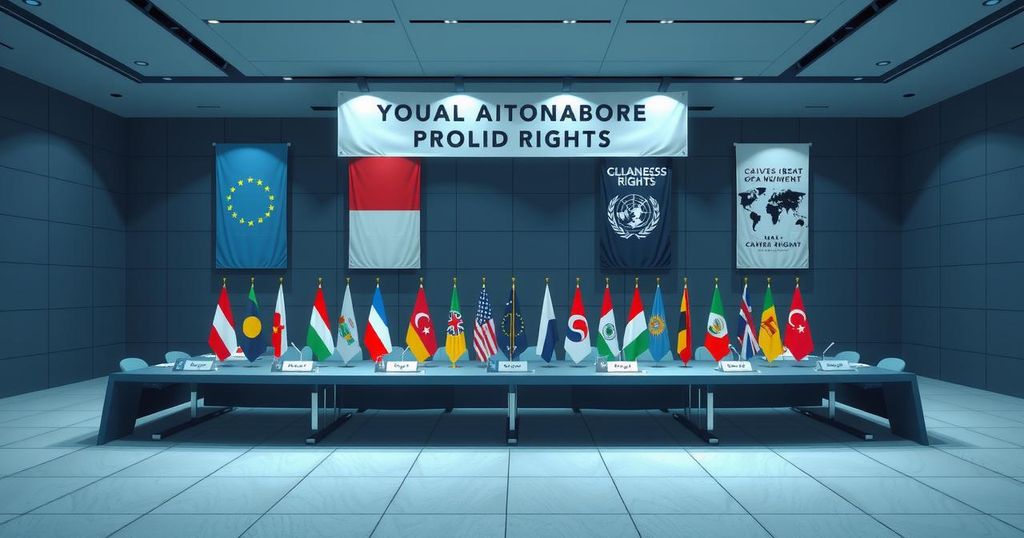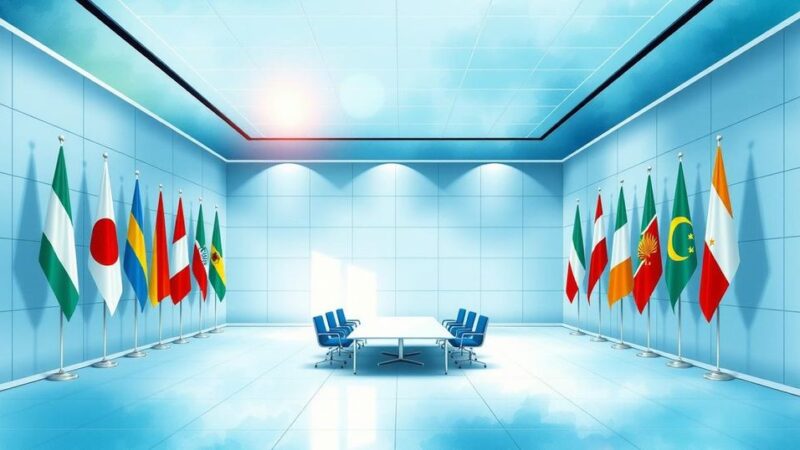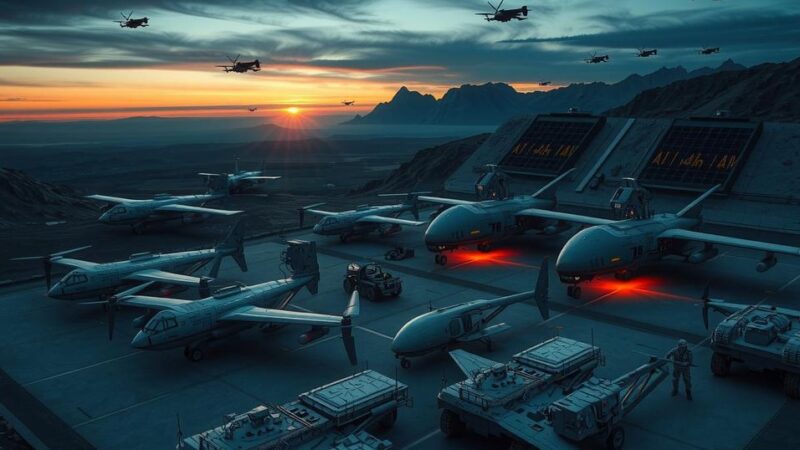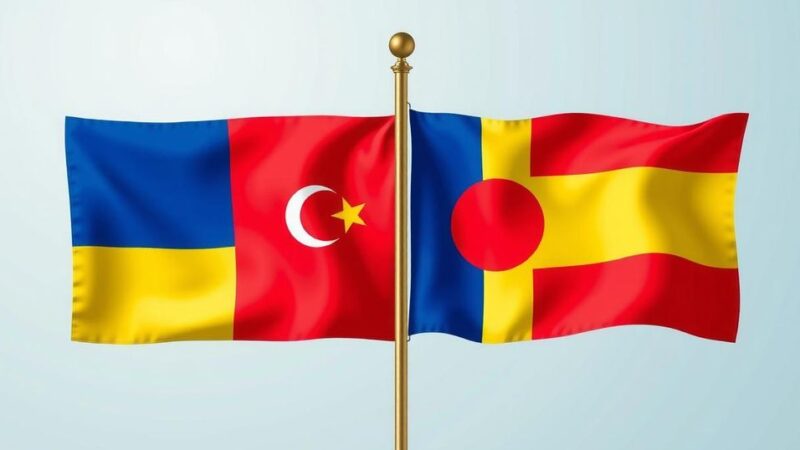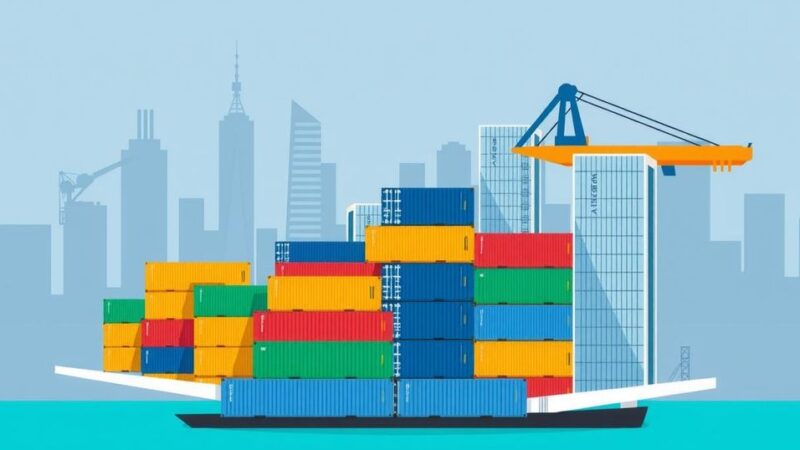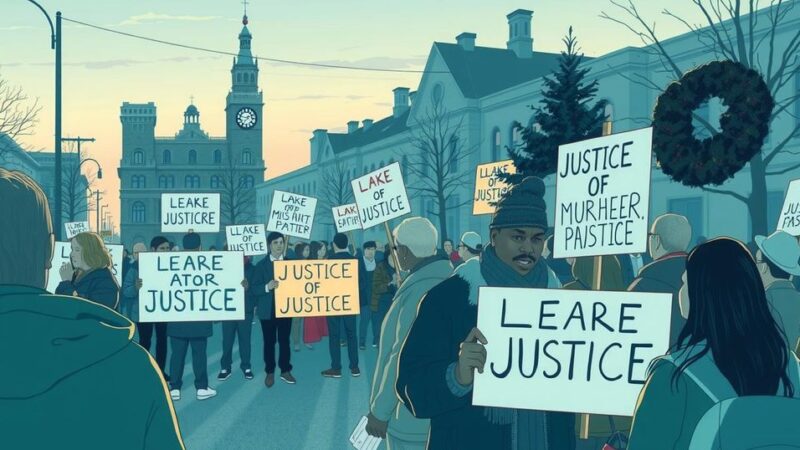On March 13, 2025, a pivotal conference on human rights in Iran was held at the UN’s European headquarters during the UN Human Rights Council’s 58th session. Attended by political figures and advocates, the conference addressed the rise in executions and demanded accountability for the 1988 massacre. Distinguished speakers, including Kirsty Brimelow and Claude Nicati, called for international measures and emphasized the regime’s ongoing violations of human rights.
On March 13, 2025, a significant conference was convened at the European headquarters of the United Nations in Geneva during the 58th session of the UN Human Rights Council. It focused on the alarming situation of human rights in Iran, particularly the rising number of executions. The event brought together a diverse assembly of political figures, legal experts, former political prisoners, and the families of executed individuals to discuss urgent issues affecting Iran’s human rights landscape.
Speakers emphasized the necessity for the international community to adopt a stringent stance toward the Iranian regime. They highlighted the need for accountability regarding the 1988 massacre of political prisoners and the ongoing atrocities represented as crimes against humanity. The urgency of these issues appeals for a unified global response to support victims and their families.
Distinguished speakers included Kirsty Brimelow, former Chair of the Human Rights Committee of the Bar of England and Wales, and Claude Nicati, former Deputy Attorney General of Switzerland. Other notable participants were Senator Roberto Rampi from Italy, Behzad Naziri of the National Council of Resistance on Iran, and women’s rights advocate Sahar Sanaii.
Mojgan Joulaee, who opened the event, pointed out the troubling trend of increasing executions in Iran and called for international action to ensure justice for victims. Kirsty Brimelow described the 1988 massacre, which led to the execution of approximately 30,000 political prisoners, criticizing the Iranian regime for breaching international human rights treaties.
Brimelow referred to reports from the UN Special Rapporteur that substantiate the extrajudicial nature of these executions and mentioned the persistent lack of accountability for the perpetrators. She pressed for the preservation of evidence to support future trials against those responsible for these violations.
Claude Nicati highlighted the case of Dr. Kazem Rajavi, a human rights defender murdered in Geneva in 1990. He argued that the absence of justice for past crimes has fostered the current regime’s continued execution practices. Nicati warned that without international intervention, recent execution cases would persist unchallenged.
Sahar Sinaie brought attention to the systemic violence against women in Iran, indicating that the country has one of the highest rates of female executions worldwide. Despite this harsh environment, Iranian women’s roles in advocating for democracy were recognized as pivotal, especially during the 2022 protests.
Senator Roberto Rampi condemned the Iranian state’s use of hostage-taking as a tactic, referencing specific instances of Western nationals being detained to manipulate international concessions. He cautioned that leniency from the West has encouraged the Iranian regime’s human rights abuses and acts of terrorism.
Behrooz Maqsoudi shared a personal narrative regarding the execution of his uncles in the 1980s due to their political beliefs, advocating for campaigns such as “No to Executions.” This initiative has found support even within Iran’s prisons. Lastly, Behzad Naziri concluded the conference by connecting past atrocities with present executions and urged for renewed investigations into Iran’s human rights violations by global authorities.
The conference at the UN European Headquarters highlighted the urgent need for international condemnation and action regarding the escalating human rights violations in Iran. Speakers called for accountability for historical and ongoing abuses, including a systematic approach to counter the Iranian regime’s execution practices. The collective appeal from various advocates underlines the critical role of international intervention to protect human rights and support the victims of these atrocities.
Original Source: www.ncr-iran.org
